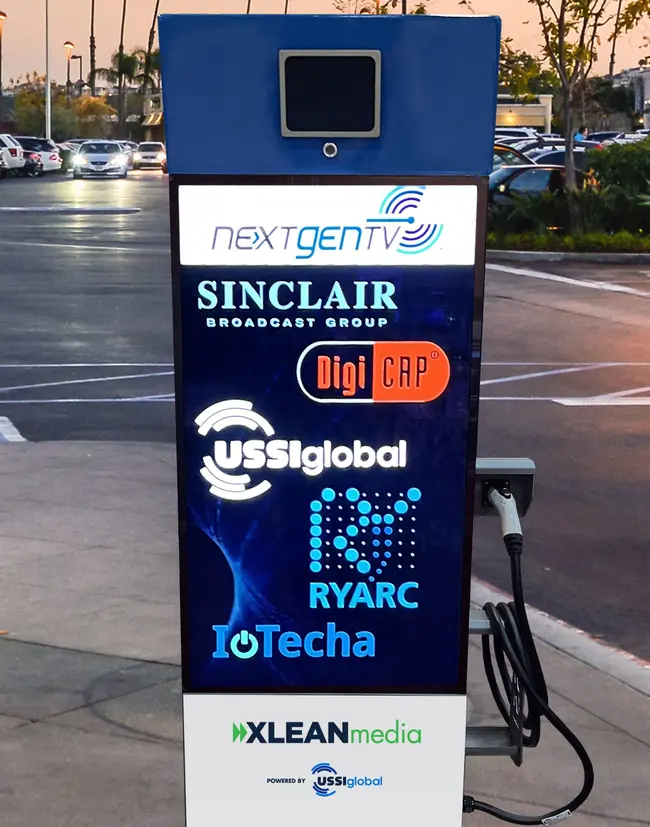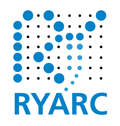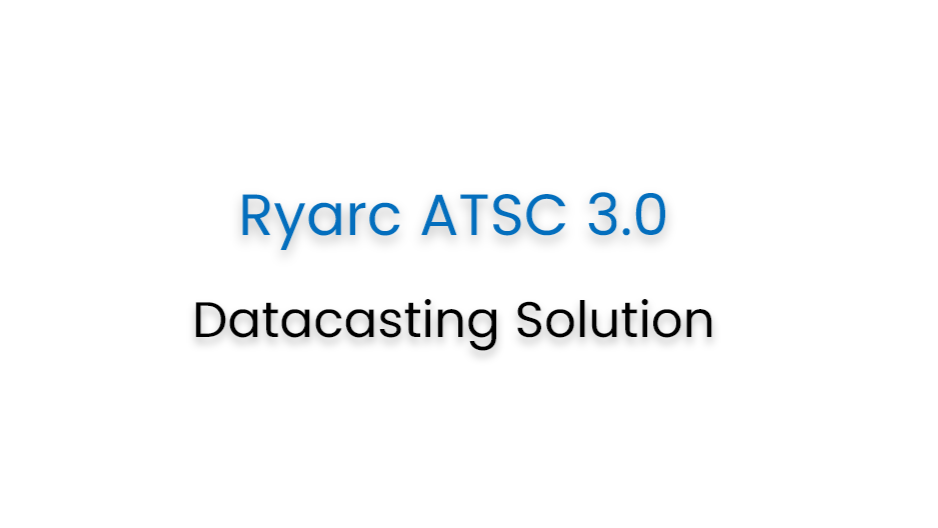Ryarc ATSC 3.0
Enhance Your Digital Signage with Ryarc and ATSC3.0 DataCasting
Create and schedule engaging content that utilizes ATSC3.0’s features to drive customer engagement and increase ROI.
Ryarc SaaS Cloud
On-premise Multi-Tenant
ATSC 3.0 Datacasting
Custom Development
Ryarc CampaignManager & ATSC3.0 Datacasting are the perfect combination to take your digital signage to the next level
Ryarc CampaignManager now supports digital signage with ATSC 3.0 datacasting. ATSC3.0 Over-The-Air Transport Layer is the latest standard for broadcast television, and it offers a wide range of features that are well-suited for Digital Signage bringing cost benefits to customers.
Interactive & Immersive Content
With ATSC3.0, businesses can now offer viewers more interactive and engaging experiences as it can deliver high-quality interactive and immersive content to the devices due to its superior compression, low bandwidth usage, and support for ultra-HD content. It is also ideal for delivering immersive audio content, Dolby AC-4, and MPEG-H 3D Audio.
Save Expensive network costs
Traditional unicast methods require separate connections for each device, causing network congestion and limiting your bandwidth. As ATSC 3.0 datacasting can simultaneously update multiple devices within the broadcast area with a single transmission, it enables the transmission of content files one time over a single connection and reaches all the targeted devices. This makes it a very efficient and affordable solution due to the lower cost of data delivery while also decongesting wireless networks. It is also far cheaper than using cellular or internet networks.
Monetize unutilized bandwidth
ATSC 3.0 offers a great opportunity for TV Stations or local DOOH providers to monetize portions of unutilized ATSC 3.0 spectrums by offering it to the Digital Out of Home companies that have a revenue share arrangement with Digital Sign hosts, Billboard operators, etc. This can supplement the TV station’s subscription or standard broadcast AD revenue from the unutilized spectrum that would otherwise be wasted. For DOOH operators, this can help recover their investment in the cost of the screens and receivers more quickly.
No Internet Required
Datacasting with ATSC 3.0 does not require an internet or cellular connection for the devices. The technology bypasses the need for a cellular network or internet service as it uses television broadcast signals to distribute content and information to devices. As the ATSC 3.0 standard is built on an IP backbone, the receiving device need not be a television, which means that design possibilities for receiving devices are nearly unlimited. Almost any kind of data can be sent—files, videos, audio, software, pictures, real-time updates, emergency messages, live video, and audio streams, etc. As ATSC 3.0 enabled devices can receive content without Wi-Fi or cellular coverage, it has emerged as an affordable and reliable alternative for delivering content to devices that lack access to the internet or cellular connection.

Schedule Free Demo
Request Free Trial
Discover the benefits of using Ryarc's ATSC 3.0 Datacasting
4K Ultra HD resolution
ATSC 3.0 supports 4K Ultra HD and possibly up to 8K resolution in the future enhancing the overall viewing experience.
Immersive Audio
Supports Immersive audio formats like newer Dolby AC-4 and MPEG-H 3D Audio. Also supports object-based sound formats like Dolby Atmos.
Hybrid delivery
Unifies broadband and broadcasting for enhanced reliability taking advantage of internet, GPS, or ATSC 3.0 networks.
Emergency Alerts
Broadcast emergency alerts, public safety announcements, traffic alerts, and other data to the targeted devices and screens.
Point-to-multipoint
Point-to-multipoint transmission over IP to both fixed and mobile devices can deliver data to millions of devices simultaneously.
Reduced Congestion
Delivers congestion-free delivery due to higher-order compression and its ability to broadcast data to an infinite number of devices.
Improved Coverage
ATSC 3.0 datacasting can be used to deliver content to devices that are located in areas with limited or no internet connectivity to help coverage.
Faster Content Delivery
Since ATSC 3.0 does not require a dedicated internet connection, it can provide faster content delivery to a large number of devices.
Live Content & Camera feeds
Live content and camera feeds can be scheduled and shown in a zone along with other content.
Travel & Logistics
ATSC 3.0 can deliver content to moving vehicles. Ideal for tracking vehicles and delivering content.
Schools & Universities
Bypasses the need for expensive cellular or broadband infrastructure. Ideal for schools in remote areas.
IoT Deployments
Manage sensors and IoT devices. Deliver software updates, and firmware to infinite numbers of devices.

